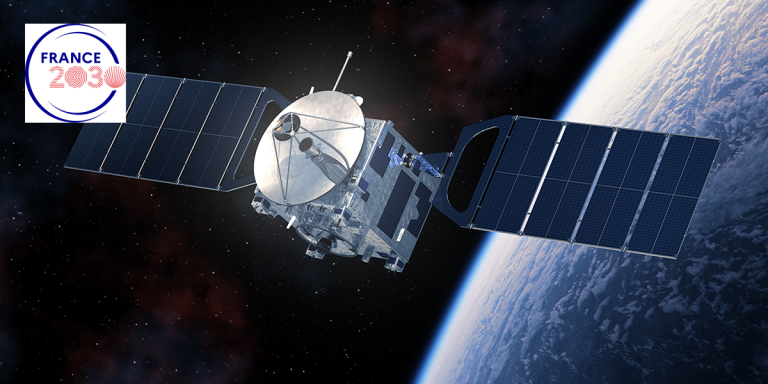…for advanced safety of off-highway vehicles.
BPI France, a key player in the financing of innovation and business growth in France, is supporting the PROTECH project led by ACTIA. The aim of this 36-month project is to develop a High-Performance Computer (HPC) platform incorporating artificial intelligence (AI) algorithms to increase the safety of construction, mining and airport machinery, and agricultural and airport vehicles, using on-board sensors.
The PROTECH project: towards Zero Accidents with artificial intelligence
The aim of the PROTECH project is to develop on-board solutions that will make it possible to achieve Zero Accidents when using various types of machinery, from construction machinery to agricultural vehicles.
Contributors to the project include:
- ACTIA, which is working on developing the High-Performance Computer (HPC) platform incorporating artificial intelligence functionalities.
- Agreenculture, responsible for collecting data from construction vehicles and agricultural robots, as well as performing demonstrations in real-life situations.
- The LAAS-CNRS laboratory, which is focusing on developing the AI-based sensory perception algorithm.
- A major lifting machinery manufacturer will also be making its vehicle data available.
This project is part of BPI France’s call for projects entitled “Technological maturation and demonstration of embedded artificial intelligence solutions.” Its aim is to support hardware and software innovations related to on-board AI, from their design to the demonstration of their effectiveness in real-life situations.
The renowned Aerospace Valley competitiveness cluster has also approved the PROTECH project, increasing its support and recognition in the field of technological innovation applied to airport vehicle safety.
Advanced safety for off-highway vehicles with the digital cockpit
Against a backdrop of increasing safety for off-highway vehicles, whether construction or agricultural, manufacturers are faced with changes in activities and working environments, resulting in a greater need for safety for both operators and equipment.
Off-highway vehicles must now be able to perceive and interact proactively with environments shared with humans in order to anticipate collision hazards. To address these growing safety requirements, vehicles incorporate a wide range of control and command functions, accessible directly from the driver’s seat. This technological progress is reflected in the increase in number of on-board sensors, such as cameras and/or radar, screens, and multi-mode controls (both manual and touch-sensitive). These numerous devices generate an ever-increasing data feed. It is against this backdrop that the Digital Cockpit/Cabin is being developed, an advanced Human Machine Interface that helps drivers to manage and control this wide range of equipment, thereby helping to improve safety for people and property.
Artificial intelligence, especially machine learning techniques, is emerging as a key technology for achieving these aims, enabling off-highway vehicles to detect, analyse, predict, and proactively react to collision risks. It is now a “must” for advanced safety of operations.
ACTIA’s expertise in digital vehicle ecosystems for innovative on-board solutions.
As a result of its expertise in embedded and connected vehicle architecture, diagnostics, on-board AI, and data management, ACTIA has developed an in-depth understanding of the digital vehicle ecosystem. By taking part in innovation projects such as PROTECH, the Group is increasing its development capabilities to offer manufacturers reliable, high-performance on-board electronic environments.
ACTIA is preparing its systems and services for the new vehicle architecture with its Augmented Architecture approach, which aims to be comprehensive, flexible, robust, and resilient. ACTIA’s ambition is to maintain its leading position with manufacturers of commercial and industrial vehicles for on-board architecture.
Visit Off-Highway website Contact our off-highway experts





